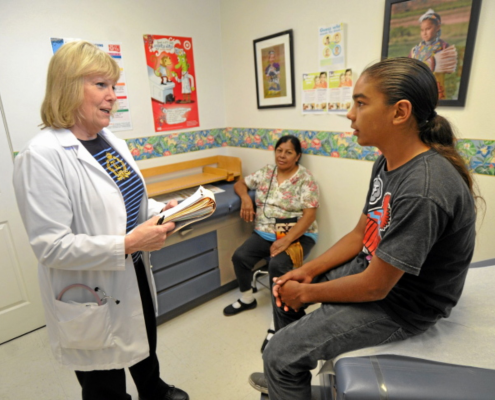Health Care Access
Racial disparities in health remain omnipresent in California. Access to quality health care allows all Californians to live a longer and healthier life.


Why Health Care Access matters to racial equity:
Several barriers have long existed for communities of color to access health care, including the inability to obtain health insurance, or qualify for Medi-Cal or other health safety net programs. Even if a Californian of color has access to health care, inequities in the health care system make it likely that the health care they receive is poor quality. Racial disparities and inequities within the health care system are a key factor in the negative health outcomes for Californians of color.

What we find:
Across indicators, the data show that Black and American Indian / Alaska Native Californians generally suffer the worst outcomes, whether life expectancy, having children with low birth weights, and preventable hospitalizations.
Key Takeaways.
Health Care Access
Learn More about our Methodology
Policy levers:
Important gaps in the available health care access data remain – limiting the ability of advocate and leaders to improve our public systems. Policymakers must collect and make available data disaggregated by race, ethnicity, and national origin wherever possible. Disparities in preventable outcomes suggest how upstream inequities continue to feed into California’s costly, downstream health disparities. Ongoing efforts to build on the successes of health care reform by expanding coverage to all residents can help address gaps in coverage. This means coverage for all Californians and increased funding to provide residents with high quality health care services through medical safety net programs.
Put Data to Use
Learn how you can take action to eliminate racial disparity and use RACE COUNTS data to advance social justice.
Take Action